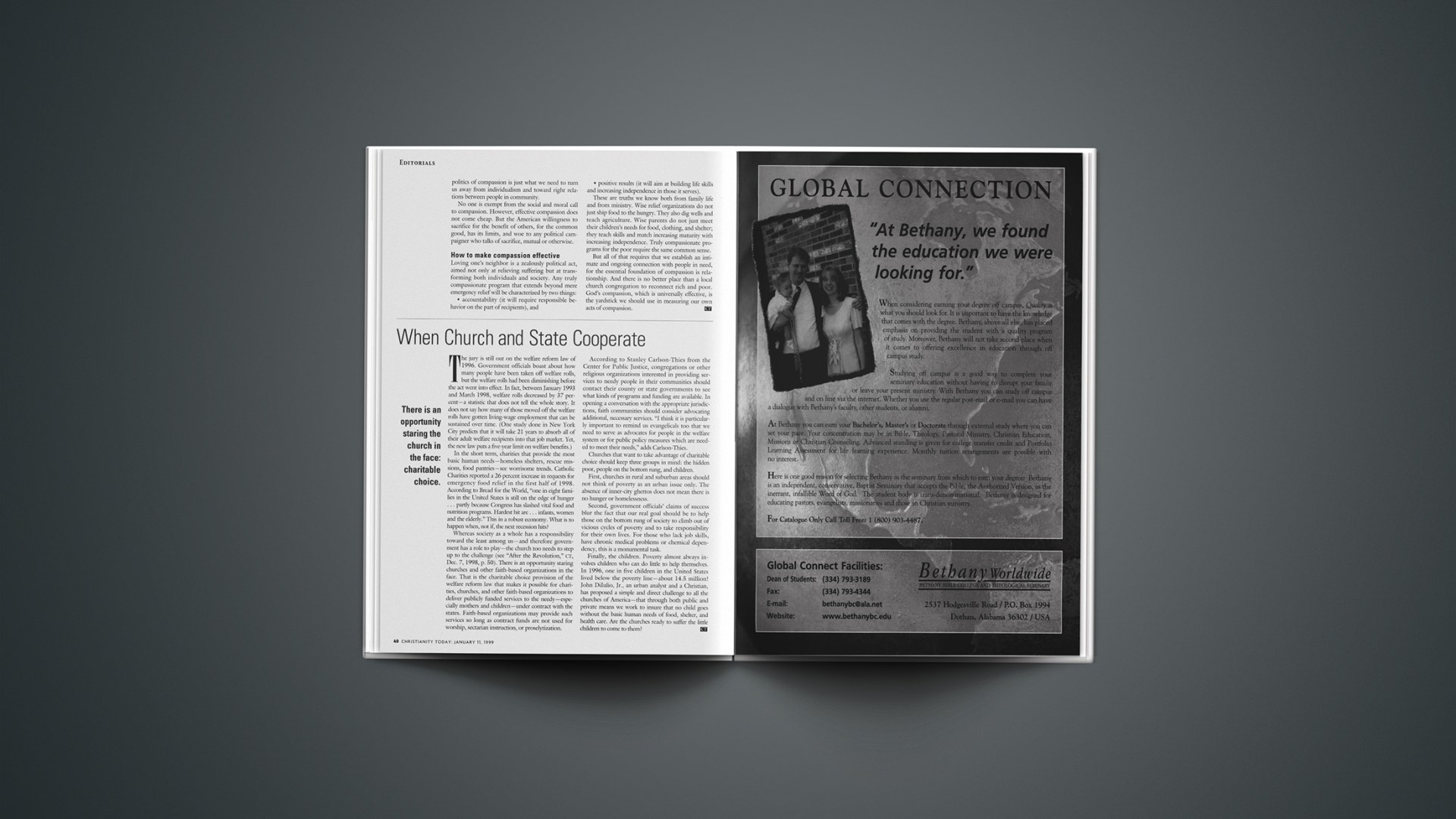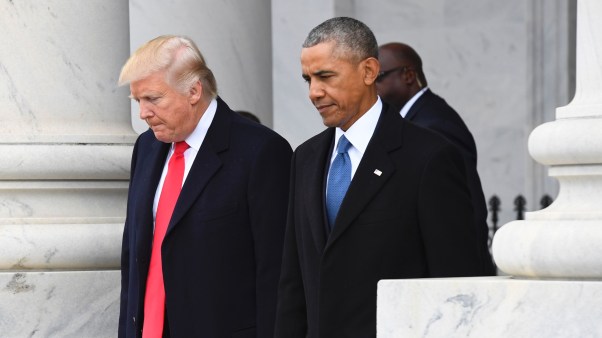The jury is still out on the welfare reform law of 1996. Government officials boast about how many people have been taken off welfare rolls, but the welfare rolls had been diminishing before the act went into effect. In fact, between January 1993 and March 1998, welfare rolls decreased by 37 percent—a statistic that does not tell the whole story. It does not say how many of those moved off the welfare rolls have gotten living-wage employment that can be sustained over time. (One study done in New York City predicts that it will take 21 years to absorb all of their adult welfare recipients into that job market. Yet, the new law puts a five-year limit on welfare benefits.)
In the short term, charities that provide the most basic human needs—homeless shelters, rescue missions, food pantries—see worrisome trends. Catholic Charities reported a 26 percent increase in requests for emergency food relief in the first half of 1998. According to Bread for the World, “one in eight families in the United States is still on the edge of hunger … partly because Congress has slashed vital food and nutrition programs. Hardest hit are … infants, women and the elderly.” This in a robust economy. What is to happen when, not if, the next recession hits?
Whereas society as a whole has a responsibility toward the least among us—and therefore government has a role to play—the church too needs to step up to the challenge (see “After the Revolution,” CT, Dec. 7, 1998, p. 50). There is an opportunity staring churches and other faith-based organizations in the face. That is the charitable choice provision of the welfare reform law that makes it possible for charities, churches, and other faith-based organizations to deliver publicly funded services to the needy—especially mothers and children—under contract with the states. Faith-based organizations may provide such services so long as contract funds are not used for worship, sectarian instruction, or proselytization.
According to Stanley Carlson-Thies from the Center for Public Justice, congregations or other religious organizations interested in providing services to needy people in their communities should contact their county or state governments to see what kinds of programs and funding are available. In opening a conversation with the appropriate jurisdictions, faith communities should consider advocating additional, necessary services. “I think it is particularly important to remind us evangelicals too that we need to serve as advocates for people in the welfare system or for public policy measures which are needed to meet their needs,” adds Carlson-Thies.
Churches that want to take advantage of charitable choice should keep three groups in mind: the hidden poor, people on the bottom rung, and children.
First, churches in rural and suburban areas should not think of poverty as an urban issue only. The absence of inner-city ghettos does not mean there is no hunger or homelessness.
Second, government officials’ claims of success blur the fact that our real goal should be to help those on the bottom rung of society to climb out of vicious cycles of poverty and to take responsibility for their own lives. For those who lack job skills, have chronic medical problems or chemical dependency, this is a monumental task.
Finally, the children. Poverty almost always involves children who can do little to help themselves. In 1996, one in five children in the United States lived below the poverty line—about 14.5 million! John DiIulio, Jr., an urban analyst and a Christian, has proposed a simple and direct challenge to all the churches of America—that through both public and private means we work to insure that no child goes without the basic human needs of food, shelter, and health care. Are the churches ready to suffer the little children to come to them?
Copyright © 1999 Christianity Today. Click for reprint information.










